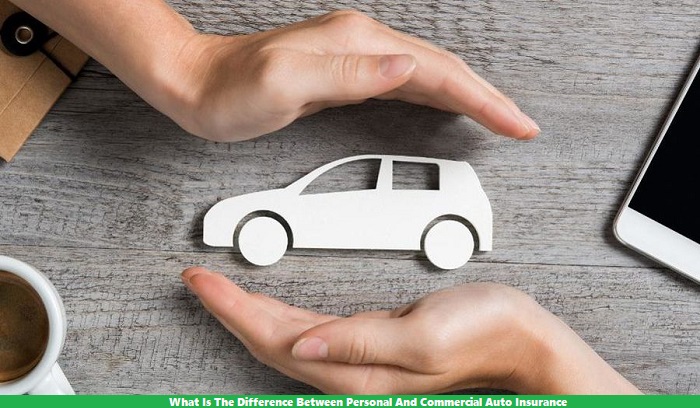A very thin line separates these two types of insurance policies. A vehicle used for grocery shopping and road trips is clearly a personal insurance case. And a vehicle like a tow truck used for business purposes is straight away a commercial insurance case. But a small business like a home bakery or florists lies somewhere in the grey area. Thus, to conclude which policy you need to buy, you must know the difference between personal and commercial auto insurance.
So, let’s start!
What Is Personal Auto Insurance?
Personal auto insurance is as the name says, covers vehicles for personal use. Personal auto insurance also covers you if you are commuting to work in the car. Also, it protects you and one or two family members.
Also read: Here Is The 5 Best US Auto Insurance Companies List!
The personal auto insurance pays you for any bodily injuries, liability costs, and property damage.
What Is Commercial Auto Insurance?
Commercial auto insurance is designed for delivering on the needs of businesses. It takes into account that multiple drivers will be driving various vehicles. Also, its liability coverage is considerably higher than personal auto insurance.
Here is a list of aspects that a commercial plan can protect:
- Equipment used with or attached to the vehicle
- High liability coverage
- Loading and unloading exposure
- Hired-vehicle coverage
- Non-owned Vehicle Coverage
- Property damage
- Other insurance requirements
The Difference Between Personal And Commercial Auto Insurance
Now that we know the fundamentals of personal and commercial auto insurance, let’s see the difference between them. The most significant difference lies in the purpose the vehicle is used for. But let’s see everything in detail:
#1: Who is the owner of the vehicle, and who will drive it?
First of all, if your business owns the vehicle, you will surely need commercial auto insurance. But if you are a sole proprietor, you may not need a commercial policy. A personal policy may still suffice. The deciding factor now will be how much do you use the vehicle, and for what?
Also read: Why Comprehensive Coverage Is Necessary For Your Car in Case of a Flood?
But still, some situations where you will need a commercial policy are:
- Your vehicle is owned or leased by a company. The company can either be a partnership or corporation.
- If the vehicle is titled or registered in the business name, you will again need a commercial policy.
- Your vehicle is on lease or rent to anybody else.
- If your employees or non-listed drivers regularly use the vehicle.
#2: How do you use the vehicle?
Consider that you use the vehicle for traveling to 1 or 2 business sites, then a personal policy may suffice. If you are a sole proprietor and just travel in the car, you also do not need a commercial policy. But if you use it for your business, like a rental car or towing truck, you will need a commercial policy.
Let’s get some clarity through a few examples. Here are a few examples of when you will need a commercial policy:
- If you carry equipment or tools in your vehicle
- If you go at business sites, like, somebody’s home as a beautician
- If you deliver food or anything else, think, a caterer.
- If you use your vehicle as a taxi like Uber or Lyft
- If you transport flammable or hazardous material, like say, a petrol tanker
- If you use your truck for freight transportation
- Lastly, if you use your vehicle as a towing vehicle
#3: What is the required business liability limit?
The coverage amount is another major factor in deciding which type of policy you will need. The commercial policy typically has a way higher liability coverage than a personal policy. Thus, if you need high liability coverage, then opt for a commercial policy.
#4: What is the type and size of the vehicle?
So, if your vehicle is a tow truck or dump truck, or anything bigger than a regular SUV or pickup, you will need a commercial plan. But if you have a car or a pickup, you can do with a personal policy depending on the various factors. The reason being that a truck can do way more damage than a car.
Also read: 13 Awesome Ways to Lower Your Car Insurance Premium!
Let’s see some cases where a commercial policy is a must:
- If your vehicle is a dump truck, semi or commercial trailer, or a tow truck
- If there are any business used tools like ladder racks in the vehicle
- Also, if there are any catering equipment in the vehicle
- If your vehicle has snowplowing attachments
- If your vehicle exceeds a gross weight of 10,000 pounds or has a rated load capacity of 2,000 pounds
- Lastly, if your vehicle is enhanced with altered suspensions or other racing equipment
#5: The premium price
The last difference between a personal and commercial plan is their premium price. Since the liability coverage in the case of commercial policy is more; thus, the premiums can also go higher.
Which Policy Should You Choose?
A personal policy will do for some small businesses, mainly if you use the car for your personal use. But if you have more prominent and complex insurance requirements, you should consider buying a commercial policy. These could be anything like high liability insurance limits, protect special equipment, transport goods or people, protect a big vehicle, etc.
Conclusion
In a nutshell, if your vehicle is small like a car and has very light business usage, you need not buy a commercial policy. For example, if you are a freelancer and seldom need to commute for work, a personal policy is good enough. But if somebody else drives the car for business usage or the vehicle is used for rigorous business chores, a commercial policy is a must.
We have tried to provide an idea of the difference between personal and commercial auto insurance policies. But we advise if you are a small business and consult with your agent about which policy will suit you the most.







